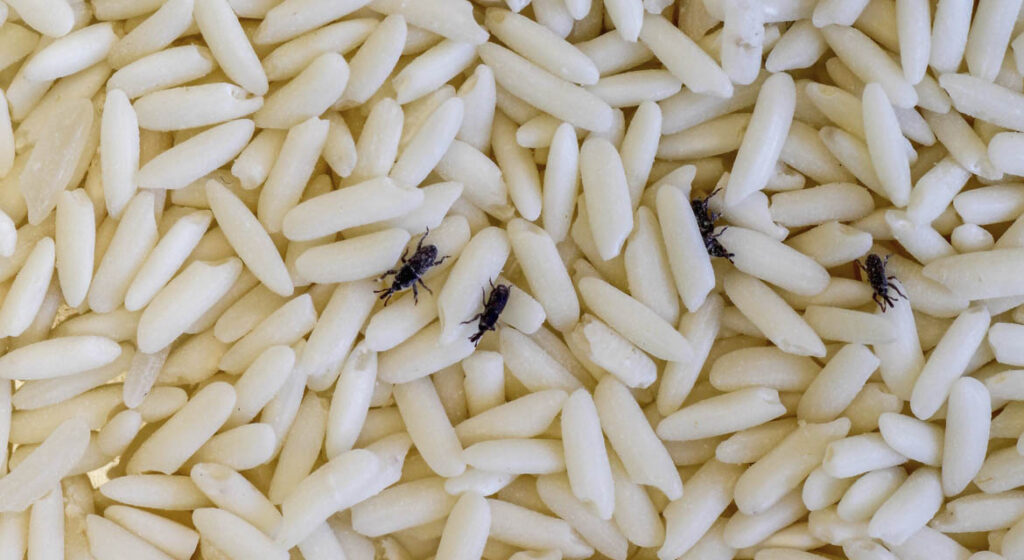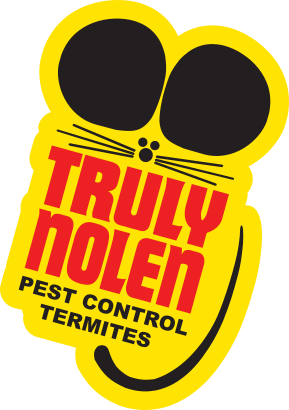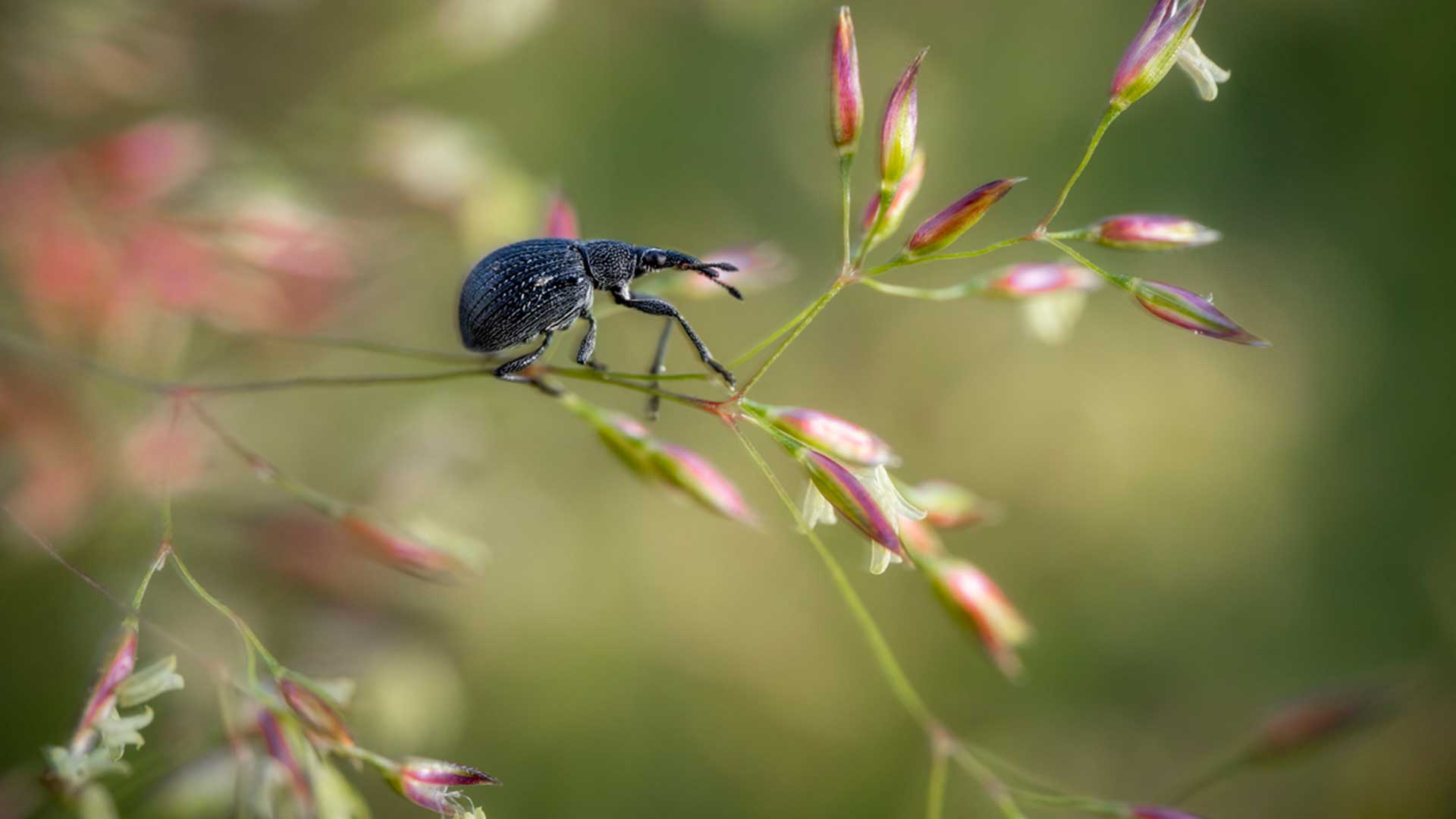
Are Weevils Harmful to Human Health?
Weevils are generally not harmful to human health, although some individuals may experience allergic reactions or respiratory issues in response to their presence or exposure to their feces. However, consuming weevils is generally considered safe, although their presence in food may indicate potential contamination or poor hygiene practices. Here are three key points to keep in mind:
- Weevils can trigger allergic reactions and respiratory issues in some individuals due to their presence or exposure to their feces.
- While consuming weevils is generally safe, their presence in food may indicate poor hygiene or storage practices and potential contamination by bacteria or mold.
- Practicing preventive measures and proper food safety, such as using airtight containers and maintaining good hygiene, helps minimize health concerns related to weevils and ensure safe consumption.
Are Weevil’s Harmful Overview
Weevils belong to the Curculionoidea superfamily. These small insects are known for their elongated snouts. For millennia, weevils have been known as one of the most common nuisance pests. These tiny, beetle-like insects are known for their ability to infest a wide variety of food products, from cereal grains and grain kernels to pet food and fresh produce. But many wonder whether these insects can harm human health.
In this article, we will delve into the topic of weevils and examine whether they pose a threat to human well-being. We will explore their habits, feeding preferences, the potential health concerns associated with their presence, and how to exterminate them.
Are Weevils Harmful to Human Health?
The short answer is no. Weevils are not harmful to human health. Unlike other household pests, such as cockroaches and mice, weevils do not carry diseases or pathogens. So, while unsightly and annoying, they do not threaten our well-being.
However, this does not mean that weevils are completely harmless. A weevil infestation can significantly damage food supplies and result in financial losses for food processing and packaging companies. In addition, unknowingly consuming weevil-infested food can lead to gastrointestinal discomfort and even food poisoning.
Can Weevils Transmit Diseases to Humans or Animals?
The good news is that weevils are not known to transmit diseases or pathogens to humans or animals. However, it is important to note that consuming weevil-infested food can cause gastrointestinal discomfort, such as nausea and vomiting. Weevil larvae cause this reaction by contaminating the food with their excrement, leading to food poisoning if ingested.
Therefore, you must always inspect food products before consuming them. Discard any that exhibit signs of weevil infestation, such as live or dead weevils, larvae, or eggs.

Truly Nolen GUARANTEE
If you’re not completely satisfied, you’ll get a full refund on your most recent service with our 100% money back guarantee.

$50 Off Year Round Pest Control
Truly Nolen is a family-owned company with 85 years of experience providing the best pest control. If you’re not completely satisfied, you’ll get a full refund on your most recent service with our 100% money back guarantee.
Do Weevils Lay Eggs in Food?
Weevil infestations occur when a female lays eggs in food products. The female weevil will use her elongated snout to drill a hole in the food product and then deposit an egg. It then hatches into a weevil larvae that feeds on the food until it is fully grown. The larvae are smaller in size than adult weevils but consume more food and therefore cause more damage.
If left unchecked, a weevil infestation can quickly spread from one food source to another, significantly damaging food supplies and resulting in significant financial losses for affected companies.
However, you can take steps to prevent weevils from laying eggs in food. For example, storing food in cool, dry environments will discourage weevils from laying eggs. Moist environments are ideal for weevils to lay eggs in, so keeping food products as dry as possible is important.
If you find signs of weevils in your food products, it is important to act quickly to prevent a full-blown infestation. You should use soapy water or white vinegar to clean out storage containers and dispose of any weevil-infested food.
Can Weevils Survive Cooking?
Weevils cannot survive high cooking temperatures, typically 140 – 212 degrees Fahrenheit. Temperatures in this range begin to break down protein and other organic molecules in food, effectively killing any weevil larvae or eggs that may be present.
High temperatures are one of the best ways to protect yourself against food-borne illnesses, as they will kill any potential pathogens, including bacteria, viruses, and parasites, that may be present.
However, it’s important to note that even though high cooking temperatures kill weevils, the pests’ presence in food can still cause concern. Weevil larvae consume and contaminate food with their excrement, leading to gastrointestinal problems like nausea, vomiting, and diarrhea if ingested raw.
Can I Eat Weevil-Infested Beans?
Many people, especially those trying to minimize food waste, may wonder if they can still eat weevil-infested food. Beans, especially, are often large enough to see the weevils clearly. So, it may be tempting to simply pick out the weevils and cook the beans. However, you should consider a few facts before doing so.
- Weevils indicate an infestation: Weevils indicate an infestation, which means you likely have a larger problem than just contaminated beans.
- Weevils leave excrement in food: Weevil larvae feed on beans and other grains, and their waste can contaminate the food, which can cause gastrointestinal problems like diarrhea, vomiting, and nausea.
- Weevils can be unappetizing to eat: Most people do not like consuming pests like weevils with their food. Knowing that weevils were present may disgust and remove the appetite from anyone meant to eat the beans, including yourself.
What should you do with your Weevil-infested beans?
The safest course of action is to discard them. Do not risk your health by salvaging contaminated food, even if it means wasting it.
Preventing weevil infestations is the best way to avoid this issue in the future. Store your beans and grain products in airtight containers in a cool, dry place. Weevils thrive in moist environments, so avoid storing your food in areas with high humidity. If you notice signs of weevils, such as small holes or webs in your packaging, discard the food immediately and thoroughly clean your storage area to prevent further infestations.
Preventing and Treating a Weevil Infestation
Weevil infestations can be hard to resolve and often result in costly losses. The best way to deal with a weevil infestation is to prevent it from happening in the first place.
Here are some tips for preventing and treating a weevil infestation:
- Keep your food in airtight containers: Weevils are attracted to moist environments, so storing your food in airtight containers in a cool, dry place is important. When you bring home new food products, transfer them to airtight containers as soon as possible to keep them safe from infestation.
- Inspect food products before buying them: Before you buy any food products, inspect the packaging for signs of a weevil infestation. Look for small holes or webs, which can indicate the presence of weevils. Avoid buying the product if you notice signs of infestation.
- Clean your storage area regularly: Regularly cleaning your storage area can help prevent weevils from taking up residence in your food supplies. Wipe down shelves and containers with soapy water and white vinegar. Also, remove spilled food or crumbs, which can attract weevils and other pests.
- Dispose of infested food products: If you notice signs of a weevil infestation, discard the food immediately. Do not try to salvage the food. Then thoroughly clean your storage area to prevent the infestation from spreading to other food products.
- Treat an infestation with diatomaceous earth: If you already have a weevil infestation, sprinkle diatomaceous earth around your storage area and food products. This substance dehydrates the weevils and eggs, causing them to die.
Are There Any Natural Remedies for Getting Rid of an Existing Infestation?
Weevils can be a costly nuisance, but thankfully, natural remedies can help you eliminate an infestation. The following natural weevil removal remedies are the most popular.
- Freezing: Weevils cannot survive in freezing temperatures, so exposing your infested food to cold conditions can kill off any weevils and their eggs. Simply place your infested food in the freezer for several days to a week to kill the weevils.
- Bay leaves: Bay leaves are a natural weevil repellent. Place a few bay leaves in your food storage containers, particularly for flour, rice, and other grains. The scent of bay leaves effectively keeps weevils away from those products.
- White vinegar: White vinegar, a common household ingredient, also has properties that can repel weevils and other pests. Mix equal parts of white vinegar and water and spray the mixture on your storage shelves and containers. The strong scent of vinegar will keep weevils at bay.
- Cloves: Cloves are another natural remedy that can help keep weevils away from your food. As with bay leaves, you can place a few cloves directly in storage containers or use sachets with cloves around your storage area. Weevils dislike the scent of cloves and will avoid areas where they are present.
Overall, these natural remedies can help you remove weevils without using harmful chemicals or pesticides. By taking preventative measures and using these natural remedies, you can keep your food supplies safe and free from weevils. Yet, if your weevil infestation gets bad enough, you may need to employ more intensive chemicals or pesticides.
Truly Nolen Weevil Control Options
For a severe weevil infestation, you will need professional help. Truly Nolen pest professionals are your best option for weevil removal. They use the following steps to exterminate your weevil problem.
- Inspection: The inspector first conducts a thorough inspection to identify the extent of the weevil infestation. This step helps the professionals develop an effective treatment plan.
- Identification: There are multiple species of weevil. Identification is essential to ensure the pest control professional uses the most suitable control methods.
- Sanitation and cleaning: The Truly Nolan pest control expert will then clean and sanitize to eliminate the weevils’ breeding areas. They will also teach you proper storage practices and hygiene measures to prevent future infestations.
- Chemical treatments: Pest control professionals may use insecticides or residual sprays specifically designed for weevils. These treatments target adult weevils, larvae, and eggs. The choice of insecticide will depend on factors such as the infestation’s severity, location, and food safety requirements.
- Insecticidal dust: Pest control experts may also use insecticidal dust in areas where liquid sprays are not practical or effective. They apply this dust to cracks, crevices, and voids where weevils hide.
- Fumigation: Pest control professionals may recommend fumigation in severe cases or situations where other methods are ineffective. Fumigation involves enclosing the infested area and introducing a gas or vapor pesticide that kills weevils at all life stages.
- Ongoing monitoring and prevention: After the initial treatment, the Truly Nolan professional may schedule follow-up visits to monitor the situation and ensure that the weevils do not return. They may also recommend preventive measures to minimize the risk of future infestations.
Truly Nolen professional pest control technicians may only use some of the above steps for your weevil infestation. Instead, they will assess the situation and determine the most appropriate treatment strategy for your weevil infestation.
Don’t let weevils ruin your grains and beans. Contact Truly Nolen for the best in weevil control and extermination.

$50 Off Year Round Pest Control
Truly Nolen is a family-owned company with 85 years of experience providing the best pest control. If you’re not completely satisfied, you’ll get a full refund on your most recent service with our 100% money back guarantee.
Frequently Asked Questions
How do weevils get into my home and infest stored food?
Weevils can enter homes through infested food products purchased from stores, as they often lay eggs on grains, rice, flour, and other food items. Once inside, they can multiply quickly and infest nearby stored foods.
Are weevils harmful to human health?
Weevils themselves are not directly harmful to human health, as they do not bite or spread diseases. However, consuming food infested with weevil larvae or their eggs is generally considered unappetizing and may cause digestive discomfort. Learn more about weevils
How can I prevent weevil infestations in my kitchen and pantry?
To prevent weevil infestations, store food items in airtight containers, regularly inspect and clean your pantry, rotate food supplies, freeze susceptible items for a few days to kill any eggs or larvae, and check for signs of infestation before purchasing packaged foods. Learn More!
How do I get rid of weevils in my kitchen and pantry?
To eliminate weevils, remove infested food products, thoroughly clean shelves, vacuum cracks and crevices, use insecticidal sprays or traps specifically designed for weevils, and consider professional pest control services for severe or persistent infestations.
Can weevils infest other areas of the house besides the kitchen?
While weevils are commonly found in kitchen and pantry areas due to food sources, they can potentially infest other areas where suitable conditions exist, such as storage areas, garages, or even pet food storage. It’s important to be vigilant and take preventive measures throughout the house.

